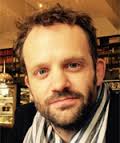 Elisabeth Becker
Elisabeth Becker
Yale University
Muslims in Europe remain designated to an “outsider” status, bounded from the mainstream by the belief that they cannot—on account of their culture—fully belong. This idea dominates not only the media but also the academy, as the vast majority of scholars study Islam from the outside. Failing to engage with actual Muslim communities, scholars of Islam mostly focus on discourses surrounding (or stemming from) failures at acceptance. They center on reactions to this religious presence and increased prioritization of religious identity among young European Muslims. Continue reading “Making a case for the “open” mosque as methodology: Muslim leaders as agents in challenging boundaries to belonging”


